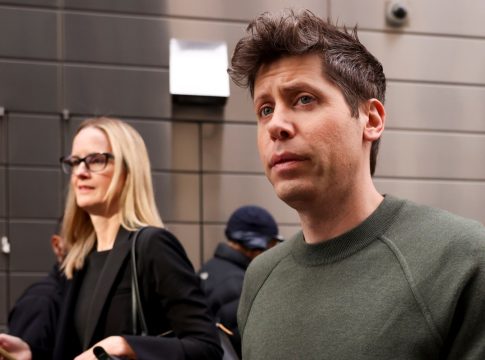The Future of AI: Sam Altman’s Vision for 2026
OpenAI’s New Direction
In a recently published essay titled “The Gentle Singularity,” Sam Altman, CEO of OpenAI, shares his ambitious outlook for the evolution of artificial intelligence over the coming 15 years. Altman’s writing typically reflects a blend of optimism and caution about the future of AI, particularly concerning the anticipated arrival of Artificial General Intelligence (AGI).
He suggests that major shifts are on the horizon for various sectors, including work, energy, and social dynamics. However, while Altman expresses confidence that OpenAI is making significant strides towards AGI, he also underscores that this milestone is still a few years away.
The Quest for Novel Insights
A focal point of Altman’s essay is the expectation that, by 2026, advanced AI systems will emerge capable of generating novel insights. Though specific details remain scarce, this hints at OpenAI’s intent to propel AI research forward in innovative ways that could reshape how we understand science and discovery.
This ambition aligns with recent developments in the AI space. OpenAI’s recent models, o3 and o4-mini, have reportedly begun producing novel and beneficial ideas. This is part of a broader trend where AI is increasingly positioned not just as a tool but as a co-creator in the scientific process.
Industry Competitors Join the Race
Leading tech companies are also recognizing the potential of AI to aid in scientific breakthroughs. Google has introduced AlphaEvolve, an AI that reportedly devises new solutions for complex mathematical challenges. Additionally, startups like FutureHouse—backed by former Google CEO Eric Schmidt—are also advancing AI capabilities to facilitate genuine scientific discoveries.
With an increasing number of companies targeting the automation of parts of the scientific process, we may soon witness AI becoming an indispensable ally in critical fields such as drug discovery and materials science.
Skepticism Among Experts
However, achieving true originality in AI remains a contentious issue. Some experts caution that despite these advancements, current AI models still struggle to formulate groundbreaking hypotheses. For instance, Thomas Wolf, Chief Science Officer at Hugging Face, has publicly expressed doubt regarding AI’s ability to ask profound questions, integral to significant scientific advancements.
Ken Stanley, a former OpenAI research lead who is now at Lila Sciences, is directly addressing this challenge. His startup has raised $200 million to develop AI that can generate more insightful and creative hypotheses, an endeavor that underscores the complexity of understanding creativity in machines.
Looking Ahead
As the landscape of AI continues to evolve, Altman’s essay not only reflects OpenAI’s aspirations but also sets the stage for future developments in the field. While there are formidable challenges ahead, the pursuit of AI that can generate unique insights may ultimately redefine our interaction with technology and its role in society.
Whether OpenAI will succeed in producing a genuinely creative AI remains to be seen, but the implications of such advancements could be profound, changing not just how we conduct research but also how we envision the future of intelligence itself. As Altman points out, the next few years could be pivotal in determining AI’s place in our lives and the world at large.

Writes about personal finance, side hustles, gadgets, and tech innovation.
Bio: Priya specializes in making complex financial and tech topics easy to digest, with experience in fintech and consumer reviews.

